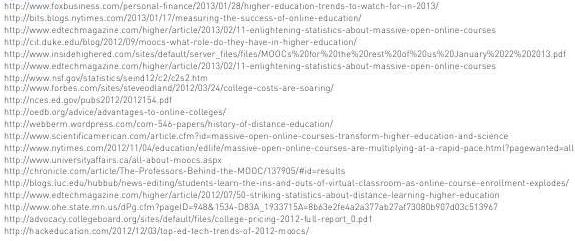
MOOCs are Not the Future of Higher Ed
The higher education industry in the United States is ripe for some big changes, and some would contend that the MOOC phenomenon could end up being the new standard. Personally, I am hesitant to claim that any “one” thing could be the answer to today’s problems, but I have no issues in saying that MOOCs may be the catalyst that higher education so desperately needs in order to keep up with today’s increasing consumer demands.
Looking at the facts, it’s hard to see this industry continuing on, “business-as-usual”, in any kind of long-term way. In 1994, U.S. university enrollment was at 14.5 million persons. Just 15 years later, that number jumped to 20.7 million… and the projected continued undergraduate growth leading up to 2019 is 16%.
In the United States, it’s plain to see why education is so sought after. According to the Bureau of Labor & Statistics (March 2012), an individual with a four-year college degree earned roughly $21,856 more in annual wages than an individual with just a high school diploma. However, four-year programs are also becoming increasingly out of reach due to growing tuition costs.
The individuals who are less likely to attend college because of financial reasons are a key demographic for MOOCs. These programs are free to join, allow for thousands of students per class, and take advantage of self-paced learning through elearning. Currently, no college credit is given for MOOC courses, although it looks like some progress has been made. In February of this year, the American Council on Education approved five MOOC courses, in the fields of science and math, for college credit. However, the catch here is that it’s up to the schools to decide if they want to accept the credit. Naturally, there is slim chance that any university would offer credit for these courses, especially when it means less money coming into them.
So, while I don’t think MOOCs are the absolute answer to the problems faced in higher ed (heck, only a measly 15% of students actually complete an enrolled course), I do think it is proving to be a very capable conduit, at the very least. This year is shaping up to be the year of the MOOC, which only means good things for online education as an industry.
References:

Justin Ferriman
@LearnDashLMS








